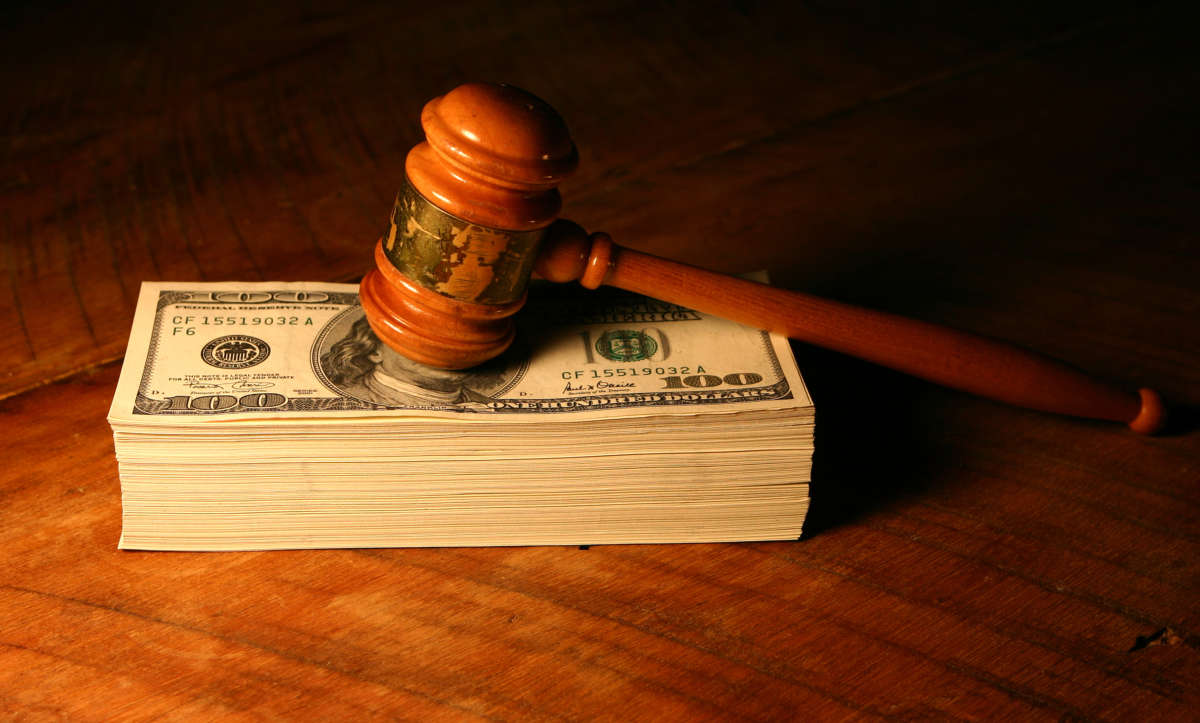Ten years ago, Justice John Paul Stevens warned that the U.S. Supreme Court’s ruling in Citizens United had “unleashed the floodgates” of corporate and labor union spending in judicial elections. In the decade since Stevens’ dissent, some supreme courts in the South have been flooded by corporate campaign cash. Super PACs that accept unlimited contributions have dominated high court races in several states, and new secret money groups spring up in every election cycle.
This year, voters in North Carolina and West Virginia will cast their ballot for three high court seats. Special interests have dominated spending in both states, and the legislatures there have defunded public financing programs for judicial elections in recent years.
A recent report from the Brennan Center for Justice, which advocates reforms to judicial selection, assesses the money spent in supreme court elections across the U.S. in 2017 and 2018. Six of the 11 states that saw more than $1 million in spending are in the South.
“Eight of the 10 biggest spenders did not disclose the true sources of their funds in a way that would allow voters to know who was trying to influence the election and future court decisions,” the report said. It also found that special interest money accounted for at least two-thirds of every dollar spent in elections to the Arkansas and West Virginia high courts.
The biggest spender, by far, in recent judicial elections has been the Republican State Leadership Committee (RSLC), a tax-exempt 527 group. The Brennan Center report found that the millions of dollars spent by RSLC in 2018 likely came from the Judicial Crisis Network (JCN), a Washington, D.C.-based secret-money group that was funded by a single $17 million contribution in 2018. JCN itself spent $3.8 million in state supreme court races that year.
JCN and RSLC have dominated recent elections for the Arkansas Supreme Court, spending far more than the candidates and running “soft on crime” attack ads. Money from the RSLC accounted for more than 80 percent of the total spending in the 2018 high court race. JCN’s attack ads that year were so misleading that a state court ordered TV stations not to air them.
Special interests are now raising money for this year’s Arkansas Supreme Court race in early March. One candidate in the nonpartisan race, Barbara Webb, has ties to the state Republican Party and is receiving financial support from the state Chamber of Commerce.
The Arkansas business community has supported “tort reform” laws, which place limits on lawsuits by injured people, and criticized rulings by the Arkansas Supreme Court to strike down those laws. Max Brantley of Arkansas Blog reported that the head of the state chamber said that flipping a supreme court seat is less expensive than pushing a constitutional amendment to overturn the high court’s rulings.
In North Carolina, the first state in which the RSLC dominated a high court election, there are three Supreme Court seats on the ballot this year. The RSLC funneled $1 million to a group that helped keep conservative Justice Paul Newby on the court in 2012. At the time, the court was hearing a racial gerrymandering lawsuit challenging election districts that had been drawn with help from the RSLC.
The North Carolina Supreme Court currently has a 6-1 Democratic majority, and this year’s election gives conservatives an opportunity to shrink the Democrats’ majority to a single vote. In recent years, the state legislature has made judicial elections partisan. It also repealed public financing for appellate court elections, a program that had kept judges from having to rely on wealthy campaign donors and helped foster judicial diversity.
West Virginia, which also has three high court seats on the ballot this year, has a similar public financing program on the books, but the legislature hasn’t funded it. A 2019 op-ed by the Ohio Valley Environmental Coalition said:
The aim of public financing was to remove conflicts of interest from our courts by giving judicial candidates the ability to run for office without taking money from parties who may later have cases before the court. This program … could help a more diverse set of qualified judges get over the hurdles between them and the bench.
Two West Virginia justices who were appointed last year are on the ballot this year for a full, 12-year term. One of them, Justice Tim Armstead, was elected last year with support from fossil fuel companies and the state chamber of commerce, according to www.FollowTheMoney.org.
Louisiana just elected a new high court justice in December, and the biggest spender in the race was a political action committee called Citizens Fighting Crime. In recent years, elections for the Louisiana Supreme Court have been flooded with money from oil companies and lawyers who sue the companies.
This year’s judicial elections could see even more spending, with conservative power players establishing new secret-money groups focused on changing the courts.
Leonard Leo, the former head of the conservative Federalist Society, is linked to a network of wealthy, secret-money donors, including JCN. Leo advises President Donald Trump and Florida Gov. Ron DeSantis (R) on which judges to appoint. He recently announced that he’s leaving the Federalist Society to start a new secret money group that will spend at least $10 million on an “issue advocacy campaign focusing on judges in the 2020 cycle.”
Join us in defending the truth before it’s too late
The future of independent journalism is uncertain, and the consequences of losing it are too grave to ignore. To ensure Truthout remains safe, strong, and free, we need to raise $43,000 in the next 6 days. Every dollar raised goes directly toward the costs of producing news you can trust.
Please give what you can — because by supporting us with a tax-deductible donation, you’re not just preserving a source of news, you’re helping to safeguard what’s left of our democracy.
